For all its challenges, 2020 also gave us many opportunities to learn. From how to properly wash our hands to how to battle systemic racism, it has been a learning experience every day. The 2020 CLEL Conference was no different. We had to learn how to network virtually, but that did not diminish the stellar presenters and keynote speakers who gave us new insights and inspirations into our youth service work. Here are some of our scholarship recipients’ greatest takeaways:
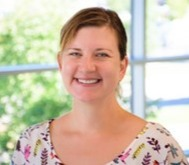
Heidi Tingey
Events Specialist
Arapahoe Libraries
Centennial, CO
Attending the CLEL conference coincided with finishing up my MLS that included creating a final project on Food Literacy. Much of the information learned about Health Literacy I found can also be applied to Food Literacy, as they relate to each other. Food literacy can be discussed within health but also as a stand-alone literacy that incorporates cultural traditions, community engagement, skill building, food consumption, nutrition knowledge and much more. Learning about these different literacies has been eye opening of the broad array of information librarians can provide to their communities. With creativity, collaboration and providing access, our work beyond books can equal a big impact even with our littlest patrons during their foundational years.
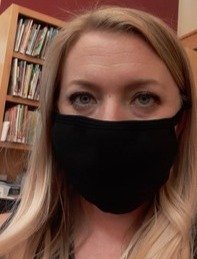
Lyndsay Brendsel
Library Associate
Westminster Public Library
Westminster, CO
I am proud of the library community’s commitment to social equality and equal access for all of our patrons. Terms like “diversity” and “inclusion” have always been a part of the youth services/early literacy vocabulary. Perhaps it was because of the nature of the Leadership Institute (the tagline was “Leading Through Change”) or perhaps it was a resounding response to the undeniable calls to action for racial equality and social justice that have been ringing out all year (and for many years before this), but there was a noticeable effort by presenters to address the growing need for real action in the library world. In my three years attending CLEL conferences, I can’t remember a line up of speakers and sessions that more actively addressed creating programs and other services for BIPOC kids and families, as well as others that may have been overlooked in the past. Attendees were challenged with calls of action to find their passions, listen more to discover what underserved communities really want, and collaborate with any person or organization who is willing in order to deliver specialized services and programs. I am on the edge of my seat, waiting to see this all put into action. But more importantly, I am diving into my passions, to figure out how I can best answer these calls to action.
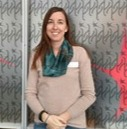
Kirsten Dees
Early Literacy Librarian
PCCLD
Pueblo, CO
My favorite session was Embracing Race in Children’s Programs with Melanie Borski-Howard and Carolyn Valencia. The session started by talking about how children are not color blind, which is very true. Children love to see people that look like them. They gave us great ideas on how to talk to children about race during storytime, wonderful suggestions for diverse books to read to children, and program ideas.
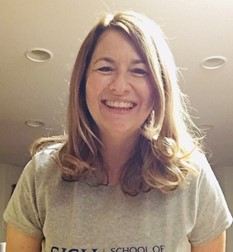
Katherine Bunker
Library Associate, Centennial Park Library
High Plains Library District
Greeley, CO
My notes are chalk-full of a rich mixture of both information from the presenters AND items conveyed from fellow attendees in the session chats. Here are just a few of the many highlights:
- Are you thinking about who is centered in your storytime? Are you centering BIPOC children and families? If not, be sure to check out www.diversebookfinder.org
and https://ccbc.education.wisc.edu/literature-resources/small-presses-of-color-native/ or www.thebrownbookshelf.com - the reminder that “we are all one, but different; all different, but one”
- listening to the emotional and poignant land acknowledgement at the beginning of Melanie Borski Howard & Carolyn Valencia’s Embracing Race in Library Programs
- naturally transition into a discussion of diversity when reading Brown Bear, Brown Bear, What Do You See? After going through all the animals’ colors (red bird, yellow duck, etc.), use the page with the children as an opportunity to discuss the beautiful colors of the children in your storytime, your community, and our world
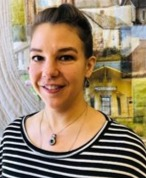
Angela McCaffery
Youth Services Coordinator
West Custer County Library
Westcliffe, CO
Even though I had to suffer through the fact that the conference was online (dramatic groan), it did uplift and encourage me. According to Kirby McCurtis and her keynote speech, I have and use the three keys to leadership. I am passionate about children and helping them have the highest quality of life possible which includes literacy. Flexibility, especially lately, is getting better and better and as for creativity, I don’t even acknowledge the box you are supposed to think inside. From the session on Early Literacy Framework, I was reminded that I do have the tools I need to do my job. I have working knowledge of early childhood development and how to facilitate early literacy. Community connections and learning resources are at my disposal. In the session Unlocking Potential-Early Literature Leadership, I was reminded that I use the keys to success: collaboration and communication. After the call to action, I was starting to feel a spark. “Passion is not an energy level” really hit home. Just because I am not out, jumping around and yelling doesn’t mean I am not passionate. If I keep on plugging away, I will make an impact.
If you missed part one of this blog series, Meeting the Challenges, be sure to check out our reflections on adapting to a virtual platform. The 2020 CLEL Conference exceeded our expectations and we hope to see you all again for yet another amazing conference again this fall 2021. With so many lessons learned, it’s sure to be better than ever.
